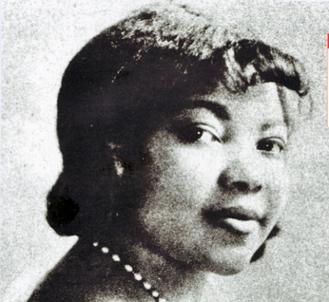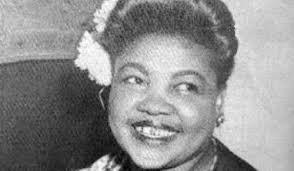Sippie Wallace, born as Beulah Thomas on November 1, 1898, in Houston, Texas, is celebrated as one of the leading figures of early 20th-century blues. Known as the “Texas Nightingale,” Wallace’s distinct voice and lyrical storytelling set her apart in the male-dominated genre of blues music. With a career spanning over six decades, her work continues to influence musicians and resonate with fans worldwide.
Early Life and Beginnings
Sippie was raised in a family of musicians, and music played a central role in her early life. Her father was a deacon, and she grew up singing in church, learning spirituals, hymns, and gospel, which influenced her vocal style. Her brothers, Hersal and George Thomas, were talented musicians as well, and they would later play an instrumental role in her career.
Around the age of 15, Sippie left Houston for New Orleans, following her brothers into the music scene of this vibrant city. Here, she was exposed to the unique sounds of New Orleans jazz and blues, which helped shape her distinct style. Her voice—a strong, clear contralto with a remarkable depth—quickly gained attention.
Rise to Fame
Sippie’s career took off in the 1920s when she moved to Chicago, a city bursting with jazz and blues innovation. By then, Chicago was home to some of the most prominent blues musicians, including Bessie Smith and Ma Rainey. Sippie began recording with Okeh Records in 1923, releasing hit songs like “Up the Country Blues” and “Bedroom Blues,” which showcased her powerful voice and unique style. She collaborated with top musicians, including Clarence Williams, King Oliver, and Louis Armstrong. Sippie’s popularity soared, and she became one of the “Big Three” female blues singers of the 1920s, alongside Bessie Smith and Ma Rainey.
Style and Legacy
Wallace’s music was notable for its lyrical content. Her songs often dealt with themes of love, betrayal, and survival, reflecting the lived experiences of African American women during that era. She was known for her expressive delivery, a storytelling style that captivated audiences and influenced later blues and jazz musicians.
Sippie Wallace’s lyrics were bold and unapologetic, resonating with listeners and challenging the norms of her time. Songs like “Women Be Wise” warned women about the dangers of jealousy and betrayal, delivered with humor and wit. Her influence extended beyond her own recordings; her vocal style, powerful lyrics, and unique phrasing inspired younger musicians, including Bonnie Raitt, who would later become a devoted admirer and friend.
Revival and Later Years
After a lull in her career during the 1930s, when the blues fell out of favor and the Great Depression took its toll, Sippie Wallace returned to Detroit, where she largely stepped back from performing. She sang in church and only occasionally played the blues.
Her career saw a remarkable revival in the 1960s when she began performing again for new audiences during the folk and blues revival. Her music reached an entirely new generation, who appreciated her authentic blues sound. She recorded several albums in her later years, including “Sippie Wallace Sings the Blues” in 1966 and “Women Be Wise” in 1982, produced by Bonnie Raitt. This partnership with Raitt helped to secure her place in the blues genre and cemented her influence on the next generation of musicians.
Awards and Recognition
Sippie Wallace received numerous accolades throughout her life, including several Blues Music Awards. In 1982, she earned a Grammy nomination for “Sippie Wallace and the Texas Blues Singers,” a recording that solidified her contributions to American music. Despite hardships and changes in the music industry, Sippie remained a respected figure in the blues community until her passing on November 1, 1986, at the age of 88.
Legacy
Sippie Wallace’s legacy lives on in the music of countless artists inspired by her style, strength, and originality. Her work represents a bridge between traditional blues and modern music, celebrated by both fans and musicians who appreciate her raw emotion, storytelling, and enduring spirit. Today, her recordings are cherished by blues enthusiasts, and her impact on blues music is widely acknowledged.
Through her indomitable spirit and distinct sound, Sippie Wallace remains a symbol of resilience, creativity, and authenticity, cementing her place as a pioneer in American blues history.


Comments are closed